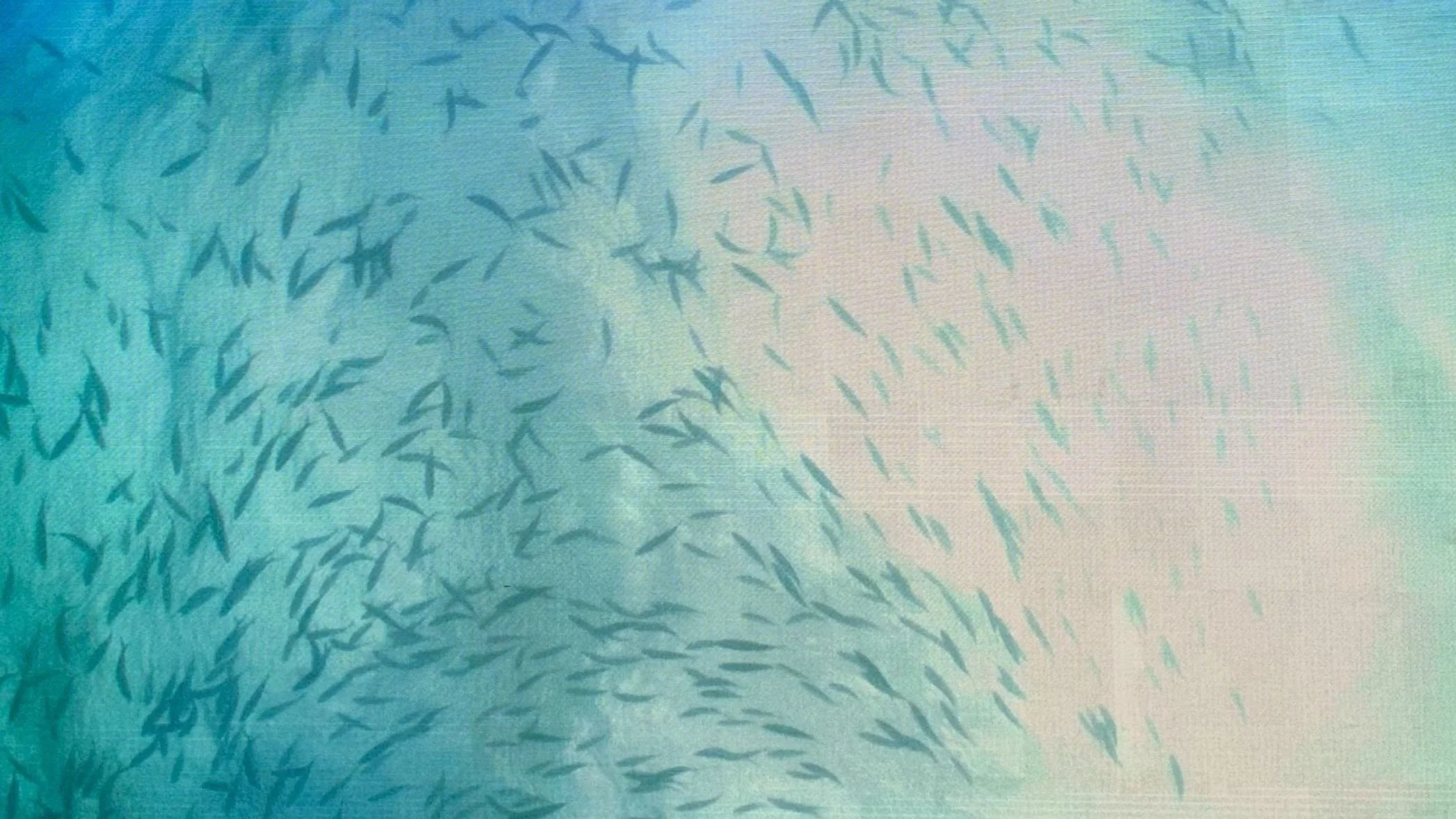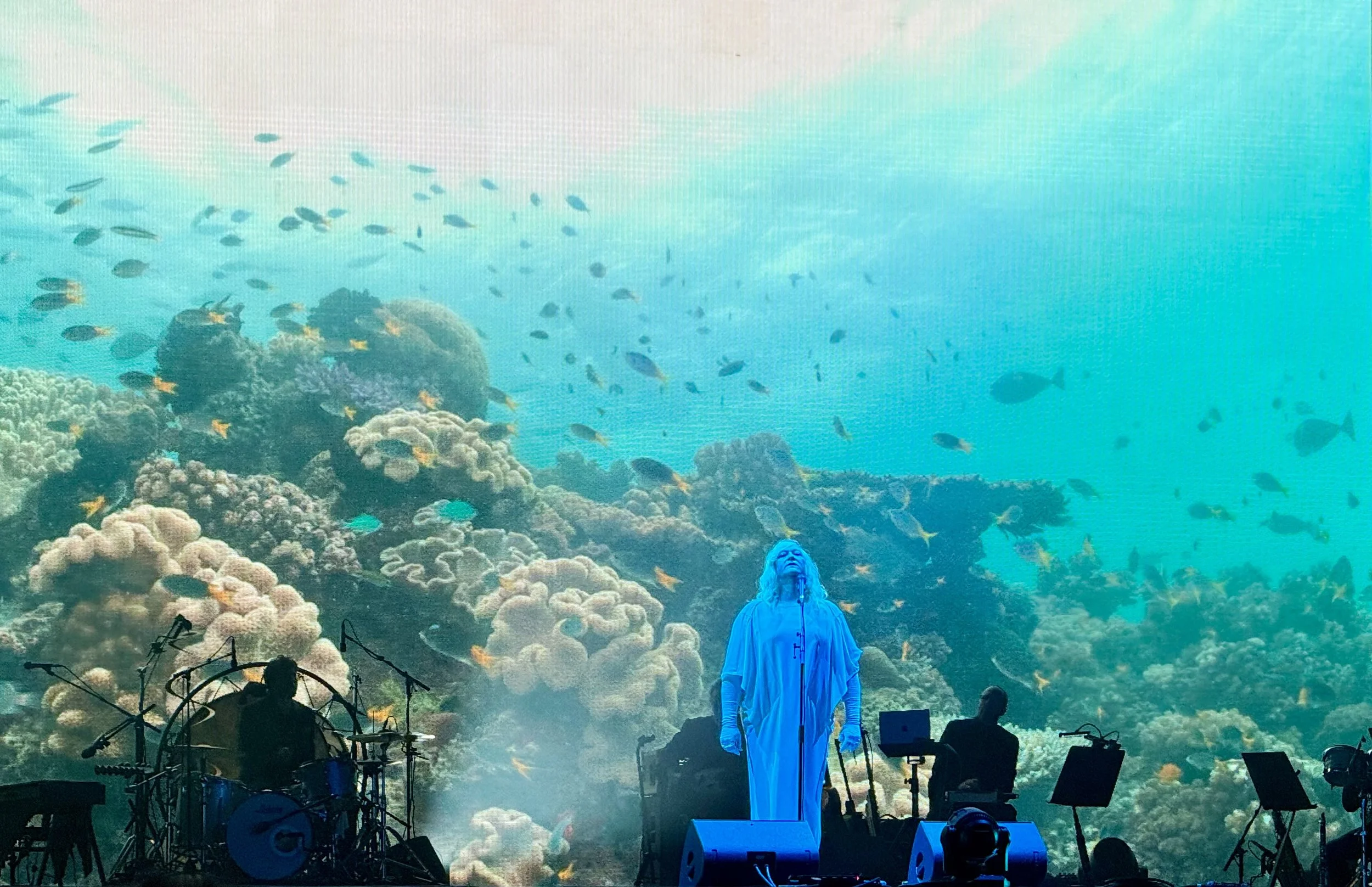Why I Wept at Primavera Sound (and What a Music Festival Taught Me About Climate Wonder)
I went to Primavera Sound to have fun; my favorite set of the festival was the one that made me weep. And it led me to wonder: what if the reason people don't take action on the climate crisis is because they haven't mourned what they're losing? What if grief is the pathway from worry to wonder?
Worry is a frenetic emotion. It can incite action (and inaction), but through a layer of anxiety, like trying to run up a hill in a net. For three years, I've been in conversation with Cam Colan about how to shed that net. The antidote for us was wonder: a reframing of perspective that transforms despair into imaginative possibility. That's what we're chasing at Amber Matters.
I understand that it is not easy to get from worry to wonder. I suspect there's a huge part of the population who turn away from the climate reality, because they simply don't know how to get out of that needle-pit of despair.
I propose grief may be the ladder to the light. And art may keep your grip strong as you climb.
I'm a lifelong culture vulture, but I rarely consider myself a fan. When friends of mine living in Barcelona asked if I wanted to go to Primavera Sound, a once indie, local music festival now headlined this year by the Powerpuff Girls of pop (Charli XCX, Sabrina Carpenter, and Chappell Roan), I hesitated, until I saw one name on the list: ANOHNI.
The piece of art that helped me truly feel the climate crisis.
ANOHNI’s 2016 album Hopelessness is the kind of beautiful that hurts — brutal and soulful. Listening to it on repeat felt like a strange relief; lyrics like “it’s only four degrees” and “how did I become a virus?” offered the grace to grieve, to sit with my guilt, rather than be forced into the fight.
The avant-garde electronica production and ANOHNI’s voice, at once effortless and guttural, turn truth pills about biodiversity loss and drone strikes into something almost drinkable. A fortifying draught, not an excoriation. As The Guardian wrote: “It doesn’t feel like a lecture. It can be strangely empowering. For all its bleakness, Hopelessness leaves you feeling anything but.”
For me, ANOHNI's music was a mourning song, a way to process climate loss and heal from the grief. After losing her husband to cancer, neurologist Lisa Shulman described the aftermath as disorientation. "I felt like I was waking up in a completely alien world," she writes. "Because the whole infrastructure of my daily life was fundamentally gone."
That sense of waking up in a world that no longer makes sense is something many of us feel when we think about climate change.
Shulman's research finds that the brain responds to grief as a threat. Cortisol levels spike, memory and decision-making falter. The brain begins to filter what we can emotionally tolerate, often at the cost of clarity.
But on the other side of that grief process is positive growth: a renewed sense of purpose, a clearer view of what matters, a shift in how we see the future and the possibilities we allow ourselves to imagine.
When we lose someone, we understand that grief takes time. We do things that don't make sense. We forget our keys. Carry three books with us and find the one we wanted in the microwave. We need rituals, time, softness, support.
And yet, when it comes to the loss of our collective home, we expect people to wake up and get moving. To accept this alien world without ceremony, or emotional scaffolding. We give them urgency, not infrastructure.
If the climate community can’t help people imagine what this new world will look like, sound like, smell like, taste like, feel like, and all we give them is the dread of what’s coming and the demand to change their way of life, then of course they cling to what they know.
We’ve given them worry. But no route to wonder.
At Primavera last Saturday, I skipped “Pink Pony Club” (no shade to Chappell, her set was great), to stand with thousands of others waiting for ANOHNI. When “Why Am I Alive Now?” began, ANOHNI clad in a prophet's white sheath, coral reefs and their denizens illuminated behind her, the crowd hushed. She began to sing and I began to weep.
ANOHNI and the Johnsons at Primavera Sound in Barcelona, 2025
The performance was interspersed with stark black-screen interviews with scientists speaking of their grief. It was a challenging contrast, being swept up in the music, then cutting to silence, save the talking heads, oft eyes tearing into camera.
From the video: "…learning to cope with ecological grief and transforming that grief into energy that drives me forward and makes me more passionate about using my remaining hopefully years on our beautiful planet to try to inspire other people to continue, sorry, it’s really difficult to talk about that grief as with all grief. But it’s real."
In the video, you can see and hear the cheers in the crowd. You can feel the solidarity. And as we contemplated the unfiltered truth hanging in the air of the black screen, the piano played, and ANOHNI’s voice rang out:
"I need another place
Will there be peace?
I need another world
This one's nearly gone"
When she finished her set, the words appeared: MOURNING THE GREAT BARRIER REEF.
This was a collective mourning. Climate grief as something shared and survivable.
Grief is a gut-wrenching emotion. But you can't get to wonder without going through it first.
Helping people mourn doesn't mean dragging them into more fear. It means acknowledging what's already there and offering a way through. And it means making tangible what another world can be.
When creating culture around climate, we need more release valves, not just more pressure points.
After ANOHNI, I went to the LCD Soundsystem show, and that's when the crying turned into dancing. A full-body joyful release. The grief was still there, will probably always be there, but now it could move.
We need more moments like this, where grief isn’t suppressed, but shared. Where pressure gives way for possibility. Where urgency softens into invitation.
This belief is what led Cam Colan, Leta Soza, and me to found Amber Matters: that meaningful climate action doesn’t grow from fear or facts alone, but from shared feeling, participation, and wonder.
Two takeaways:
If you’re an artist or cultural maker, trust that audiences can hold difficult truths…just give them something beautiful (or joyful or funny or awe-filled) to hold onto. ANOHNI’s performance didn’t shy away from grief. It met it with honesty, and with craft so powerful it left the crowd not hollowed, but filled.
If you’re building climate solutions, your work can do the same. Help people imagine a future that feels familiar, nourishing—even wonderful.
In my next piece, I’ll explore how pop culture and music fandoms can act as release valves: cultural openings that move people from paralysis to participation through collective effervescence. If you’re trying to build belief, not just awareness, we’d love to be in conversation.
And if you want to listen to ANOHNI’s set from Primavera, here you go.




